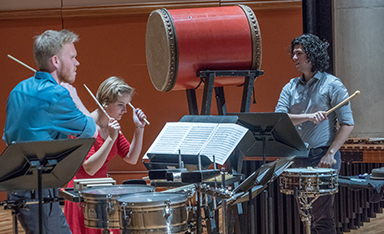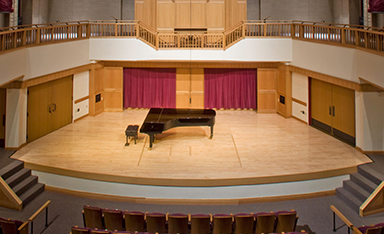The Bachelor of Music in Composition offers composers rigorous training in composition, harmony, counterpoint, analysis, conducting, orchestration and digital audio — all within the context of a dynamic liberal arts university. As a composition major, you’ll benefit from the close mentorship of our accomplished faculty and gain frequent opportunities to have your work performed. With a strong ratio of performers to composers, Lamont offers a rich environment for collaboration, allowing your music to come to life in rehearsal rooms, concert halls, and professional recordings. For those interested in digital media and production, our state-of-the-art recording studio is integrated with every performance venue in our building. You’ll graduate with a diverse and professionally produced portfolio, ready for the demands of today’s creative industries.
Beyond technical mastery, a music education in this program fosters creative problem-solving, discipline, emotional intelligence, and the ability to collaborate — skills that prepare you for a meaningful career whether in composing, performing, teaching, or fields beyond music. This program is an ideal foundation for aspiring composers who are ready to develop their unique voice and contribute to the future of music.
About the Program
Audition and Portfolio Requirements
Classical Composition
- For Classical Composition requirements, please visit the Composition studio page.
Jazz Composition
- For Jazz Composition requirements, please visit the Jazz studio page.
Degree Requirements
The bachelor of music in composition consists of 194 total credits, 132 of which come from music. Students receive weekly one-on-one lessons, participate in ensembles, and take coursework in music theory, musicology, conducting and music technology.
In addition to satisfying DU's common curriculum requirements, students must fulfill requirements for piano proficiency, sophomore composition proficiency, music beyond the primary culture and Convocation attendance. After the first quarter, students must have a new work performed on the Lamont Composer's Series Concert each quarter.
See the DU Undergraduate Bulletin for full course requirements.




